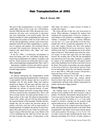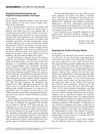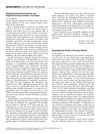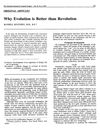 January 2018 in “Springer eBooks”
January 2018 in “Springer eBooks” Lasers are less favored for hair transplant surgery but show promise for hair growth in controlled trials.
 September 2017 in “Springer eBooks”
September 2017 in “Springer eBooks” Epinephrine does not significantly affect the severity of hair loss after surgery.
 January 2016 in “Georg Thieme Verlag eBooks”
January 2016 in “Georg Thieme Verlag eBooks” Hair transplantation in East Asians needs special techniques to ensure natural results and prevent complications due to their unique hair and scalp characteristics.

Modern hair restoration techniques can effectively treat hair loss and provide natural-looking results.
 June 2015 in “Biomedical and biopharmaceutical research”
June 2015 in “Biomedical and biopharmaceutical research” The congress showed advancements in skin hydration, barrier function, and safe, effective new cosmetic formulations.
 January 2012 in “Elsevier eBooks”
January 2012 in “Elsevier eBooks” Hair loss can cause emotional and social issues, and various treatments, including medication, surgery, and psychological support, are needed.
 June 2011 in “Expert Review of Dermatology”
June 2011 in “Expert Review of Dermatology” Researchers discovered potential origins and new treatments for skin cancer, including biomarkers for melanoma and therapies that reduce tumor growth.
 November 2009 in “Regenerative Medicine”
November 2009 in “Regenerative Medicine” The regenerative medicine industry saw business growth with new partnerships, clinical trials, and financial investments.
 June 2008 in “Dermatologic Surgery”
June 2008 in “Dermatologic Surgery” Hydrogen peroxide may have both positive and negative effects on wound healing, and its safe concentration for hair transplant surgery is unclear.
 June 2006 in “The American Journal of Cosmetic Surgery”
June 2006 in “The American Journal of Cosmetic Surgery” Advancements in cosmetic and reconstructive surgery improve techniques and patient satisfaction.
 September 2004 in “Atlas of the Oral and Maxillofacial Surgery Clinics”
September 2004 in “Atlas of the Oral and Maxillofacial Surgery Clinics” Hair restoration surgery techniques can effectively treat scalp deformities and have evolved to provide natural-looking results.
 June 2002 in “Seminars in Cutaneous Medicine and Surgery”
June 2002 in “Seminars in Cutaneous Medicine and Surgery” Hair transplantation has improved to more natural-looking results and is complemented by effective non-surgical treatments, with ongoing research into hair follicle cloning.
 January 2001 in “Current problems in dermatology”
January 2001 in “Current problems in dermatology” Hair transplantation has improved to use smaller grafts for a natural look and may include follicle cloning in the future; non-surgical treatments are also effective.
 December 1999 in “Dermatologic Surgery”
December 1999 in “Dermatologic Surgery” Experts discussed sedation, hair transplant techniques, and called for respectful professional communication.
 December 1999 in “Dermatologic Surgery”
December 1999 in “Dermatologic Surgery” Indonesia's dermatologic surgery training program aims to improve patient care by educating skilled surgeons.
 June 1997 in “The American Journal of Cosmetic Surgery”
June 1997 in “The American Journal of Cosmetic Surgery” Gradual improvements in hair restoration techniques are safer and more effective than drastic changes.
 March 2021 in “Dermatological reviews”
March 2021 in “Dermatological reviews” Hair transplant works well, but needs more research for better results.
 January 2007 in “Dermatologic Surgery”
January 2007 in “Dermatologic Surgery” Artificial hair fibers help treat scalp scars with few complications and a 20% yearly fiber fall rate.
 10 citations,
January 2010 in “Springer eBooks”
10 citations,
January 2010 in “Springer eBooks” Asian hair restoration surgery requires different methods due to the unique characteristics of Asian hair, such as its sparseness and coarseness.
 3 citations,
May 2018 in “Journal of nutritional health & food science”
3 citations,
May 2018 in “Journal of nutritional health & food science” Nutritional supplements can help manage hair loss and promote hair growth by strengthening hair roots and countering harmful effects of pollution, smoking, and deficiencies in vitamins and minerals.
 1 citations,
January 2016
1 citations,
January 2016 Learn how to do hair restoration surgery.
 March 2021 in “Hair transplant forum international”
March 2021 in “Hair transplant forum international” Minoxidil helps hair growth.
1 citations,
January 2010 in “Springer eBooks” Hair cloning could solve the problem of limited donor hair in transplants.
 February 2024 in “Scientific Reports”
February 2024 in “Scientific Reports” Cinnamic acid may help hair grow by activating oxytocin receptors.
 October 2023 in “Facial Plastic Surgery”
October 2023 in “Facial Plastic Surgery” The FUE-LE technique combines two hair transplant methods to improve graft yield without needing a large team or extra costs.

Surgical hair restoration can be done without hair transplantation.

Non-transplantation methods can effectively restore hair.

Hair loss in women can be caused by genetics, menopause, certain health conditions, and emotional stress, and it often results in thinner hair and a changing hairline.
11 citations,
January 2018 in “Springer eBooks” The book helps surgeons improve hair transplants for Asian patients.



























